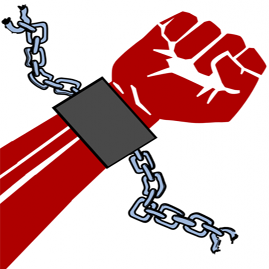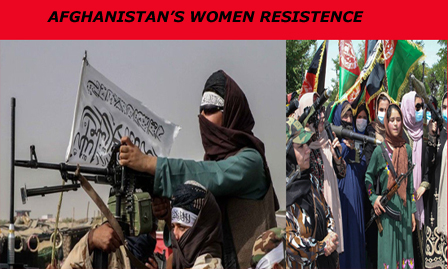| |
CLICK HERE ON HOW TO READ
THE BELOW (updated 12 MAR 2022)
When one hurts or kills a women
one hurts or kills hummanity and is an antrocitie.
Gino d'Artali
and: My mother (1931-1997) always said to me <Mi
figlio, non esistono notizie <vecchie> perche puoi imparare qualcosa da
qualsiasi notizia.> Translated: <My son, there is no such thing as so
called 'old' news because you can learn something from any news.>
Gianna d'Artali
Observation i.e. investigation by Gino d'Artali
19 June 2022
Before you read the article published by The Guardian on the same
date (read below) first this:
UN Chronicle
By Irina Bokova
Irina Bokova is Director-General, United Nations Educational,
Scientific and Cultural Organization.
<<Education for All: Rising to the Challenge.
Imagine a school that changes location every forty-five days -- a
school that comes to the child, instead of the other way around. This is
happening on the steppes of Mongolia where the government provides
mobile tent schools for nomadic herder communities. Further north, in
the extreme conditions of Siberia, or further south, on the hot, dusty
plains of Kenya, other nomadic children are enjoying more educational
opportunities than their parents ever did. These tailor-made approaches
are the answer to reaching children who continue to miss out on learning,
ten years after the international community commit-ted to achieve
Education for All by 2015. The six goals adopted in Dakar at the World
Education Forum, two of which are also Millennium Development Goals,
cover the whole educational spectrum, from early childhood, primary and
secondary education, through to vocational programmes for youth and
literacy programmes for adults. For millions of children and youth,
these goals are making a genuine difference. In one decade, an
additional forty-two million children have entered primary school, with
girls benefiting in ever greater numbers. South and West Asia more than
halved its number of out-of-school children and sub-Saharan Africa
reduced the figure by 28 per cent. This has happened because governments
have made education a national priority. They have abolished school fees,
recruited teachers, built classrooms in rural areas, supplied midday
meals -- often the only one a child will get in a day -- or provided
subsidies to children from the poorest families. They have levelled the
playing field for girls by introducing scholarships, running community
campaigns, deploying female teachers in rural areas, and installing
separate sanitation facilities in schools. Countries such as India have
also reinforced their legislation to ensure that education is a basic,
free, and compulsory right. These advances are proof that the goals are
realistic and achievable. They are initiatives we must encourage, share
and replicate. But it will take much bolder action to meet the 2015
targets.>>
Read more here:
https://www.un.org/en/chronicle/article/education-all-rising-challenge
And:
UNESCO
<<Education transforms lives.
Education transforms lives and is at the heart of UNESCOís
mission to build peace, eradicate poverty and drive sustainable
development. It is a human right for all throughout life. The
Organization is the only United Nations agency with a mandate to cover
all aspects of education. It has been entrusted to lead the Global
Education 2030 Agenda through Sustainable Development Goal 4. UNESCO
provides global and regional leadership in education, strengthens
education systems worldwide and responds to contemporary global
challenges through education with gender equality as an underlying
principle. Its work encompasses quality educational development from
pre-school to higher education and beyond.>>
Source: UNESCO
Now read how I quoted The Guardian:
The Guardian
19 June 2022
By Patrick Wintour Diplomatic editor
<<UN urged to impose travel ban on Taliban leadership over
oppression of women.
Human rights groups are urging the UN to end a Trump-era waiver
that allows Taliban members most responsible for the oppression of women
in Afghanistan to travel abroad. In a test for the international
community's willingness to isolate the Taliban, critics argue that those
Taliban members curtailing womenís right to leave their homes within
Afghanistan should at minimum be banned from leaving their country. The
UN has imposed extensive sanctions against the Taliban, but the security
council is due to debate next week whether to impose a travel ban on all
its leading members as a way of signalling that the Taliban's route to
international recognition, let alone legitimacy, is blocked so long as
it continues on its course of driving women from public life and teenage
girls out of secondary education. The travel ban expires automatically
on 20 June unless the UN renews it, and key figures in the US
administration not only want it renewed, but extended. But there is as
yet no official US position. Currently only 41 members of the Taliban
administration are affected by the travel ban after it was partially
suspended three years ago to permit 14 members to participate in peace
talks. Heather Barr, from Human Rights Watch, says at a minimum travel
bans should be imposed on three individuals: Abdul-Haq Wassiq, the head
of the intelligence agency; Sheikh Muhammad Khalid Hanafi, the head of
the ministry for the promotion of virtue and the prevention of vice; and
Haibatullah Akhundzada, the Talibanís top religious leader, who
reportedly played a decisive role in extending the ban on girls'
secondary education. She said: <Itís a false dichotomy to suggest that
ending the travel ban exemption means giving up on engaging the Taliban.
Itís time for governments to turn consensus that the Taliban's actions
are unlawful into coordinated actions that show the Taliban that the
world is ready to defend the rights of Afghans, particularly women and
girls, in meaningful ways.> The former Swedish foreign minister Margot
Wallstroem has come out in support of the move, saying: <The
longstanding UN ban on travel for Taliban leaders carries a waiver for
some of them. Meanwhile, Afghan women can hardly leave their homes. The
travel ban exemption should not be renewed without conditions: real
progress for Afghan women and girls.> Annie Pforzheimer, a former deputy
chief of the US mission to Kabul, has also urged the state department to
act. <Suspending the travel ban has allowed the Taliban to pursue the
diplomatic recognition it craves, setting in motion the creeping
normalisation of an authoritarian and extremist movement that other
groups will emulate.> Critics say the Taliban use overseas visits to
mislead diplomats about the potential pluralist trajectory of the
Taliban, and it is vital that the international community does not
favour engagement for its own sake. Senior Taliban figures were last
seen in St Petersburg for the international economic forum hosted by
Vladimir Putin. Asila Wardak, an Afghan women's rights activist and
former diplomat, said: <We talk about a travel ban for the Taliban, well,
the real travel ban is on Afghan women who are barely allowed to go
outside their homes. But still, the Taliban has all the travel benefits
it wants despite that.> >>
Read more here:
https://www.theguardian.com/world/2022/jun/19/un-urged-impose-travel-ban-taliban-leadership-oppression-women
And to end my Observation i.e. investigation: basically the UN is
giving the taliban a blanc passport to go wherever they want.
Mubasher - Al Jazeera
5 June 2022
<<Iraqi Maysoon.. Repairs women's cars <only> and seeks to teach
them mechanics (video).
After completing her university studies, the young Iraqi Maysoon
Hassan did not find a job that fit her specialization in Arabic and
Islamic sciences so she opened a small car repair workshop dedicated to
women only. Masyoun took this craft from her father and mastered it
years ago. A number of women attend her workshop daily in Zayouna, east
of the capital, Baghdad, to maintain and repair their cars, while she
hopes to expand her project and attract other women to this profession
that is monopolized by men.
In this context, Maysoon organizes courses in car mechanics for
women so that they can rely on themselves to repair minor faults in
their own cars. She says, <I first learned to repair Japanese car
engines from my father since I was 14, then I trained in some government
workshops, and soon I became good at repairing American and then German
cars. <I had the opportunity to enter a training course in Korean car
repair from the Ministry of Labor, and I had the ambition to open a
workshop to repair women's cars, especially after I failed to get a job
with my certificate>, she added.
And she continued, <Three years ago, after my father's death, I
decided to open my humble workshop for women only, as there are many
women who own cars and prefer to deal with women in these matters.> And
she added, <I am subjected to bullying in my field of work, and some
have told me: I own the money of the men's business, and I heard that
from the people closest to me, but I do not care about that, and my wish
is to have a larger workshop in which I develop the work and give
courses for women.> >>
Source : Al Jazeera Mubasher
https://mubasher.aljazeera.net/news/miscellaneous/2022/6/5/%D9%85%D9%8A%D8%B3%D9%88%D9%86-%D8%A7%D9%84%D8%B9%D8%B1%D8%A7%D9%82%D9%8A%D8%A9-%D8%AA%D8%B5%D9%84%D8%AD-%D8%B3%D9%8A%D8%A7%D8%B1%D8%A7%D8%AA-%D8%A7%D9%84%D9%86%D8%B3%D8%A7%D8%A1
|



